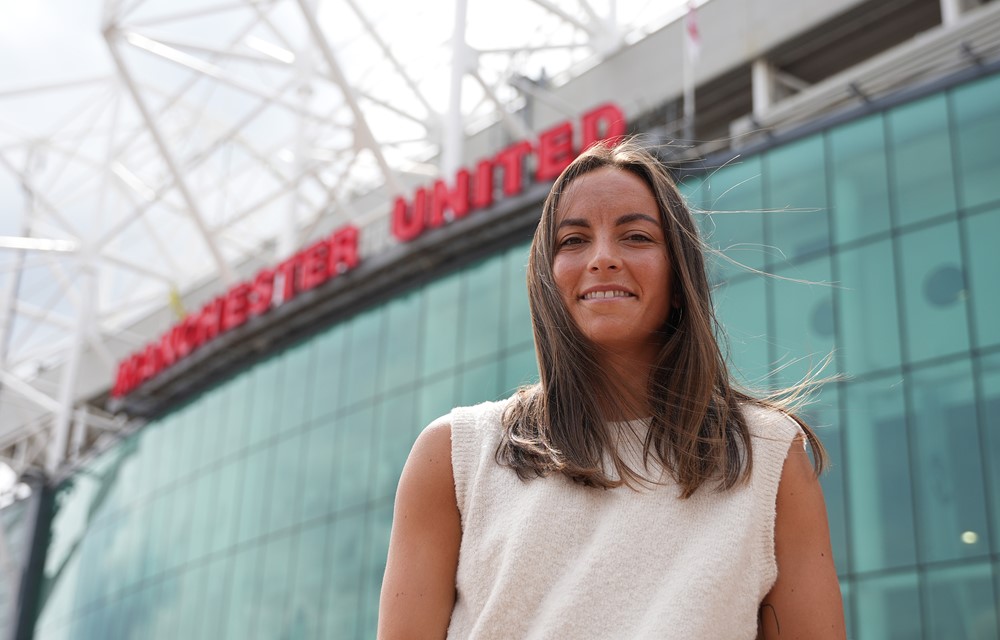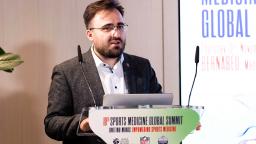Lucy Staniforth: "It’s important to open up about how you're feeling"
Lucy Staniforth: "It’s important to open up about how you're feeling"


Manchester United midfielder and England international Lucy Staniforth is part of FIFPRO’s Mental Health Taskforce.
I never understood the concept of mental health until two years ago when I lost my stepdad during the summer I joined Manchester United.
I had suffered losses when I was younger and there were underlying feelings that I hadn’t dealt with.
That summer was a real pivotal moment for me, where I first understood how strong and weak you can be mentally. It was the moment where I really started to struggle with my mental health.
It’s hard to explain those feelings and emotions I went through at that time. I had made the biggest move in my career, and I was elated about that, but the person who I really wanted to see it wasn't there. It was hard to be happy in that moment when I was suffering such loss.
The shining light through all of that was the support I received from Manchester United. It really helped me get through that experience.
From that, I learned it's so important to open up about how you're feeling and accept help when it's there, especially when it feels like such a difficult and confusing time.
I think that's why we need to raise awareness about mental health and understand: ‘If you’re not okay, this is what you can do. If you see someone that’s not okay, this is what you can do to help them’.
I think the Mental Health Taskforce at FIFPRO is a novel thing that's happening in women's football. You can take your experiences and share them with a group, but also listen to other players, and find out the things that they're going through.
Through this group of players that have had various different experiences in their life, it allows FIFPRO to have a greater understanding of the issues that we might face.
It better equips people moving forward and raises awareness for players to reach out. Players might find that their club is not as supportive as they should be, or that they might not have the tools and training to be able to support in those moments.
FIFPRO can offer that support. One of the things they are focusing on is post-tournament mental health.
When I think about my own experiences, I was part of a squad at a tournament that had relative success in the 2019 World Cup, which was then left on a bit of a sour note given we didn't reach the final or get a bronze medal.
From the outside, everyone has their own opinions of a tournament. But there's 23 players in the squad and only 11 can start. So, the experiences of every single individual within that squad are going to be so different.
To say: ‘Oh, that was a great tournament, you must have really enjoyed it’ or ‘You got knocked out, that must have been really difficult’ feels simplified.
There are so many different circumstances that happen in a tournament that when you generalise a whole squad of players, it doesn't help the people within them.
By understanding those experiences more fully, you can really map out what sort of specific support players need – whether it’s just allowing people to have a conversation about their experiences or have some real sessions of what they went through at the tournament.
Going back to my own experiences in 2019, I had joined Birmingham City the previous year. We had a great season and I got picked for the World Cup on the back of that.
I had a great experience with England that summer, but then I was straight back into a club side that was struggling and had lost a few players.
The best advice I could give to players on the back of a tournament is not to just look at someone as a player.
Try to take a step back and think about what has led them to that experience, and appreciate how they might be feeling on the back of an amazing tournament, and then perhaps going into a difficult club situation. Every player’s experiences are different.


 Comments
Comments


